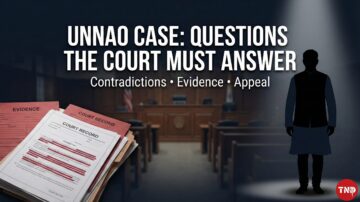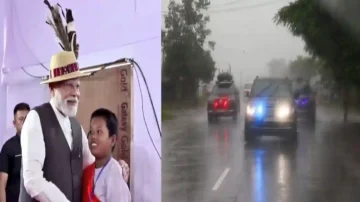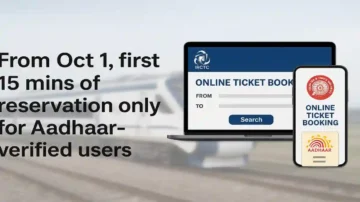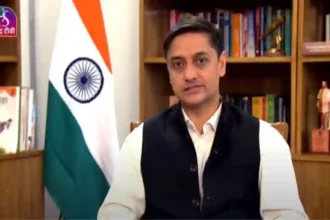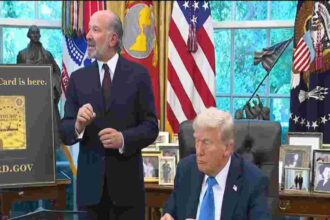- CJI D.Y. Chandrachud Gavai’s remarks on Lord Vishnu sparked fresh debate on religion and judiciary.
- Ambedkarite Buddhists follow 22 vows, rejecting faith in Brahma, Vishnu, and Mahesh.
- Critics argue these vows often translate into hostility toward Hindu traditions.
- CJI questioned why firecracker bans apply only in Delhi and not across India.
- Supreme Court heard a petition seeking nationwide restrictions on firecrackers.
- The court emphasized equal application of environmental protection measures.
- Next hearing on the matter is scheduled soon.
The Chief Justice of India, D.Y. Chandrachud, has often been seen as outspoken on matters of faith and rights. But it was a recent remark by his colleague, Chief Justice B.R. Gavai, that has struck a deep chord with Hindus across the country. During a hearing, Justice Gavai mockingly told a petitioner to “go ask your deity” to solve the matter, referring directly to Lord Vishnu.
For many Hindus, this was not simply courtroom banter. It was a direct insult to their deity — a deity worshipped in homes, temples, and festivals across India for millennia. The question now being asked is simple: would such language ever be used against a Muslim, Christian, or Sikh faith figure? If not, why is it acceptable when the target is Hinduism?
This controversy does not stand in isolation. It comes in the context of other judicial debates, including the Supreme Court’s continuing scrutiny of Hindu festivals, particularly Diwali firecrackers, and the deeper ideological roots of Ambedkarite Buddhism, which Justice Gavai himself follows.
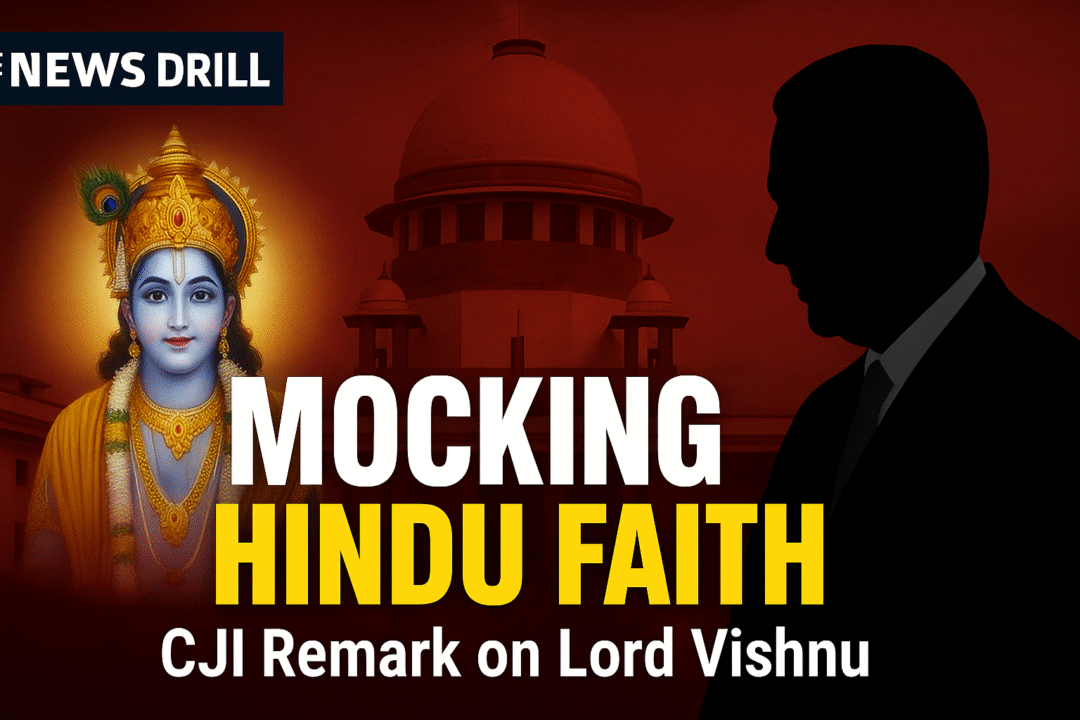
The Vishnu Remark – An Open Mockery
In court, the Chief Justice of India is expected to embody impartiality, balance, and respect for the beliefs of citizens. Justice Gavai’s comment, however, appeared dismissive and insulting. By telling a petitioner to seek help directly from the deity, he trivialised the faith of millions.
The broader implication is dangerous. It sets the precedent that mocking Hindu gods is fair game in India’s highest constitutional court. And yet, one can imagine the outrage if a similar remark was directed at Prophet Muhammad, Jesus Christ, Guru Nanak, or the Buddha. The silence of secular commentators who otherwise rush to defend “hurt sentiments” only reinforces the perception of selective bias.
Firecracker Bans – Targeting Festivals?
Alongside this, the Supreme Court has been increasingly active in regulating Hindu festivals in the name of pollution control. Justice Gavai himself recently questioned why firecracker bans were being applied only in Delhi and not across India. His argument was that all Indians, not just Delhi residents, have the right to pollution-free air.
On the surface, this appears logical. But it raises two problems:
1. Cultural Impact: Diwali, deeply tied to Hindu tradition, is disproportionately singled out. Why are similar regulatory standards not applied with equal intensity to other large-scale religious gatherings?
2. Economic Impact: The firecracker industry employs thousands, many from marginalised communities. A nationwide ban could destroy livelihoods, with little alternative offered in return.
In effect, Hindu festivals are increasingly subject to judicial restrictions while others are treated with caution.
Ambedkarite Vows – The Ideological Root
To understand why Justice Gavai’s remark has sparked suspicion of bias, one must look at the ideology of Ambedkarite Buddhism. Dr. B.R. Ambedkar, who led the mass conversion of Dalits to Buddhism in 1956, drafted 22 vows for his followers. The very first vow states:
I shall have no faith in Brahma, Vishnu, and Mahesh, nor shall I worship them.
This is not neutrality. It is an explicit rejection of Hindu gods. Millions of Ambedkarite Buddhists have since taken this vow, which fundamentally sets them in ideological opposition to Hinduism.
Justice Gavai, a proud Ambedkarite and follower of this tradition, cannot be divorced from these roots. Personal disbelief in Hindu deities is, of course, a matter of individual faith. But when a Chief Justice, shaped by vows rejecting Vishnu, mocks Vishnu in court, the suspicion of prejudice naturally arises.
Hindutva’s Dilemma – Unity or Division?
For years, political Hindutva movements have attempted to reach out to Ambedkarite groups, citing shared battles against “secular” forces. Yet the 22 vows create an immovable wall: if Ambedkarites are bound to reject and denounce Hindu gods, can there ever be genuine unity?
The recent incident is forcing many to reconsider. Is “social justice” merely a noble idea, or has it been weaponised to elevate one group while systematically mocking another? The paradox is glaring: Hindus are asked to be inclusive, yet are mocked for their very faith at the highest level of justice.
The Erosion of Hindu Rights
Taken together, the patterns form a concerning picture:
Temples regulated while other religious bodies are left free.
Festivals restricted with bans on crackers and rituals.
Social justice policies that often translate to reduced opportunities for Hindus in education and employment.
Judicial remarks mocking deities made without consequence.
This is not about one remark or one ban. It is about the cumulative erosion of respect and rights for Hindus within the institutions that claim neutrality.
Conclusion – The Road Ahead
India is a secular republic. That does not mean hostility toward Hinduism. Justice Gavai’s remark about Lord Vishnu, when combined with his Ambedkarite background and the vows of his faith, raises unavoidable questions of bias. It forces Hindus to ask: is the system stacked against us, even at the very top?
Personal disbelief is one thing. Public mockery from the Chief Justice of India is another. No faith should be ridiculed in court, least of all by those sworn to uphold justice.
As the ancient saying warns: Vinash Kale Viprit Buddhi — when destruction approaches, wisdom turns upside down. For the Supreme Court, this may be the moment to reflect before crossing the line from justice into prejudice.


